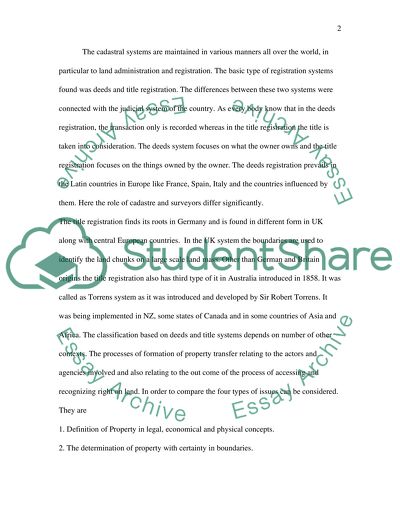Cite this document
(“Property Law: Comparative Analysis of the System of Deeds Registration Essay”, n.d.)
Property Law: Comparative Analysis of the System of Deeds Registration Essay. Retrieved from https://studentshare.org/miscellaneous/1531743-property-law-comparative-analysis-of-the-system-of-deeds-registration-and-land-title-registration
Property Law: Comparative Analysis of the System of Deeds Registration Essay. Retrieved from https://studentshare.org/miscellaneous/1531743-property-law-comparative-analysis-of-the-system-of-deeds-registration-and-land-title-registration
(Property Law: Comparative Analysis of the System of Deeds Registration Essay)
Property Law: Comparative Analysis of the System of Deeds Registration Essay. https://studentshare.org/miscellaneous/1531743-property-law-comparative-analysis-of-the-system-of-deeds-registration-and-land-title-registration.
Property Law: Comparative Analysis of the System of Deeds Registration Essay. https://studentshare.org/miscellaneous/1531743-property-law-comparative-analysis-of-the-system-of-deeds-registration-and-land-title-registration.
“Property Law: Comparative Analysis of the System of Deeds Registration Essay”, n.d. https://studentshare.org/miscellaneous/1531743-property-law-comparative-analysis-of-the-system-of-deeds-registration-and-land-title-registration.


